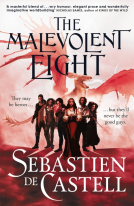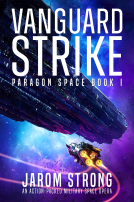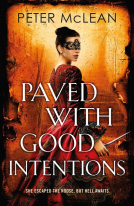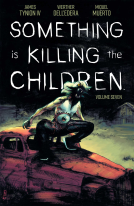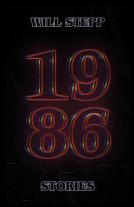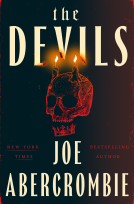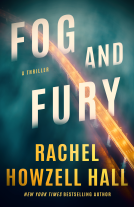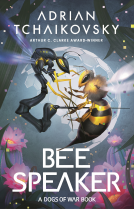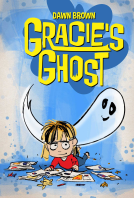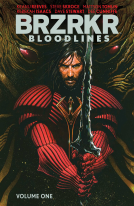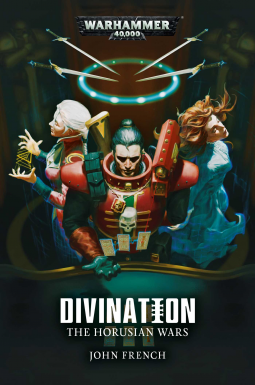
The Horusian Wars: Divination
by John French
This title was previously available on NetGalley and is now archived.
Send NetGalley books directly to your Kindle or Kindle app
1
To read on a Kindle or Kindle app, please add kindle@netgalley.com as an approved email address to receive files in your Amazon account. Click here for step-by-step instructions.
2
Also find your Kindle email address within your Amazon account, and enter it here.
Pub Date Apr 28 2020 | Archive Date Mar 31 2020
Black Library | Games Workshop
Talking about this book? Use #TheHorusianWarsDivination #NetGalley. More hashtag tips!
Description
Available Editions
| EDITION | Other Format |
| ISBN | 9781789990669 |
| PRICE | CA$17.00 (CAD) |
| PAGES | 320 |
Featured Reviews
 Paul S, Reviewer
Paul S, Reviewer
Inquisitor Covenant and his aides/allies/ servants are a very interesting combination of characters and talents that I personally would not want to me in a sunlit room let alone a dark alley! for me probably one if the best Warhammer books about the inquisition as I didn’t enjoy either Eisenhorn or Ravenor so I will most definitely be reading more about these characters soonest
I still remember one of the first times I came across Inquisitor Covenant, it was when his model was released for the old Inquisitor game. Whilst I only briefly delved into that game he was at the time sadly outshone for me by the Eisenhorn model as I'd fallen in love with that character through the books. However, thanks to some of the amazing novels released from Black Library since then I've come to have a new respect for Covenant and his band of warirors.
Hoursian Wars: Divination is the latest entry into the Horusian Wars series, a set of books that sees Inquisitor Covenant fighting against a faction within the Empire that wants to recreate Horus, a figure invested with the power of the Warp, but that will unite mankind rather than enslaving it to Chaos. Whilst the main series addressed these issues, this new book sets aside the big picture to spend time looking at each of Covenants main allies, giving a short story over to several of them.
'The Mistress of Threads' centres on Viola von Castellan, sister to Covenant's other ally Cleander (who also has a story to himself), and second in line to the von Castellan legacy. Her story immediately stands out as different from the others in the book as it' told through communication logs rather than regular prose, using the Warhammer 40,000 equivalent of letters to tell its tale. Contacted by a cousin of hers, Cressida Syr Morio, she is asked for help to get out of a tricky situation. Cressida and her husband have recently fallen on hard times, and their entire trading operation was on the verge of collapse before a shadowy group called the Cyctos Cartel stepped in to help them.
As can be expected from a shadowy group that comes in to help you without wanting any obvious reward other than 'friendship', there are hidden string attached. My first thought here was that it was going to end up being some kind of criminal organisation that was wanting to use Cressida's company to do something dodgy; and I was right, just not in the way that I was imagining. Over the course of the communications it begins to become clear that the Cytos Cartel are actually a front for a Genestealer cult. Obviously, such a group can't be allowed to stick around, so Cressida uses Covenant's resources to step in and wipe them out. But even this action is told in the form of after-action reports and logs.
The story is a fun little tale where the mystery becomes obvious to anyone familiar with the Warhammer 40,000 universe even before Viola says the dreaded G word, but it's still really fun to see how things unfold. It's also fairly unique as it's one of the few times that I've seen big actions scenes written as dull reports that still come across as exciting.
'Spirit of Cogs' turns attention to Glavius-4-Rho, the former Martian Tech Priest. In this tale Glavius tells a story to Severita, the former Sister of Battle. He recounts a story from his early life, long before he met Covenant and joined his team. Having been summoned to the planet Zhao-Arkkad for his experitise in plasma reactors, Glavius discovers a secret mission by a group of Tech Priests to restore a huge, hitherto unknown kind of titan, to life.
The story is written as part mystery, and part slow burn horror, as Glavius descends deep beneath the surface of the planet to the dig site far below, where the sleeping machine awaits. The secrecy surrounding this project already makes it creepy enough, with the way the chief Tech Priest acts being weird enough to raise questions, but when you discover that the Titan is somehow drawing all sources of energy to it, including simple things like light from candles, it makes the whole place a very disturbing location.
There's no confirmed answers given in the story as to what this Titan is, or why these strange things are happening within it, though the small detail that it's painted purple and has golden metal seems to be a heavy hint that it's tainted by Chaos as it immediately made me think of Slaanesh and the Emperor's Children. The fact that you don't get these answers, however, helps to increase the level of discomfort you get from the story, and makes it one of the creepiest entries to the collection.
'The Father of Faith' might be one of my favourite stories in the collection. It focuses on Josef Khoriv, a former gang member turned Preacher. We get to see some of his past in this story, showing readers the violent and bloody upbringing he had living in a hive city before being seized by a Navy press-gang. It's here that he meets Abernath, a preacher who gives Josef an opportunity to make something more of himself and get him out of the violent and dangerous lower levels of the ship.
Abernath proves to be someone who shows Josef that there's the possibility of more for him than the life he currently knows, and meeting that man would completely change the course of his life forever. So when Covenant learns that Abernath has been arrested for heresy and blasphemy, Joesf is given the chance to try and help him.
The reason why this story stood out to me amongst the others in the book, why it's the one story I thought about most after finishing, is the end. So if you don't want it spoilt for you turn away now as I have to talk about the final pages of this story. Having accepted his crimes and confessed there is nothing that Josef or Covenant can do to save him, and he is punished accordingly. The two characters discuss this, and Josef makes a request of Covenant regarding Abernath after his punishment. Now, I was expecting this to be Abernath being executed and they request his body so that they can give him a proper burial; but I forgot how horrible the 41st millennium is. Instead, Abernath is butchered, and transformed into a horrifying Arco-flagellant. The scene where Josef goes to collect his former friend and mentor, finding a mindless monstrosity in his place was genuinely heartbreaking, and left me close to crying. It was a stark reminder that there are no 'heroes' in the Warhammer 40,000 universe, and that the humanity of the future is a horrific, and often brutal regime.
These are just a few of the stories on offer in The Horusian Wars: Divinations, and the collection is packed with tales that are of equally high quality. There are stories that are full of action and adventure, deep dives into character's psyche's, mystery and intrigue, and enough exploration into characters pasts that proves that whilst Covenant might be the central figure of the series, each one of his team are well crafted and amazing characters who would be more than capable of headlining a story of their own.
"We fail and there will be no humanity to be called an Imperium. Not here, not on distant Terra, nowhere. There will just be a thing that was once call mankind, weeping as it eats itself and the darkness laughs."
An astonishingly well written collection of short stories, dripping in atmosphere and flavour, showing fringe parts of the Warhammer 40,000 mythology that are generally not presented.
To start with, I have only read one collection of w40k stories before (Deathwing) and that was around 30 years ago. I have dabbled with the games through the years, both on tabletop and on computer, but my actual w40k knowledge is bare bones, to say the least.
But I also have always had a soft spot for its ridiculous archness, its over the top gothicness and how it explores a terrible human future in which religious zealotry and fascism go hand in hand.
This collection of stories steers away from the usual space marines and their ilk, and focuses on a disparate group of rogues and mercenary agents that follow an inquisitor called Covenant, most notably the family of the Von Castellans (yep, we're in w40k territory, alright).
We have stories of the inquisition violently rolling up cults poisoned by the many chaos gods, but also a genuinely moving story of an old mentor having a vision of the Emperor that instantly brands him as being a heretic, while what he has seen probably is the truth.
To be frank, I was expecting a solid collection of genre work, and what I found astonished me with the quality of its writing, which is deeply atmospheric and flows beautifully. You'll experience downtrodden w40k worlds, you'll be there right inside of the action (and there is enough of that, too), and you'll feel the doubt and worries some of these people have about their blessed Imperium and its Emperor.
This is a great collection of short stories - French does a great job of making each one feel unique, with different perspectives and story devices employed, allowing each story to fit its protagonist. I really enjoyed the looks into each member of Covenant's entourage, and look forward to seeing more of what he and his team do/have done.
Since its launch in 2001, Games Workshop’s Inquisitor tabletop miniatures game has managed to establish itself firmly in the imaginations of countless readers and plenty of writers. Indeed, Inquisitor as a narrative jumping off point has far outlasted Inquisitor as a game - perhaps unsurprisingly, given the complexity of the rules, as well as a few other issues that made it trickier to get to grips with than some of the company’s other products. Set in the same universe as that of the immensely popular Warhammer 40,000, Inquisitor does survive as a playable game to this day, often combined with other rulesets to make it more easily workable. Whilst the game in its originally published format might not have had the commercial success of many of GW’s other properties, the sheer amount of background information and lore created for and around the game, as well as the tone the rulebook set, have proven to have a lasting effect. The universe it details is one where shadowy agents of the Emperor of mankind, each one distinct and terrifying, are empowered to battle the forces of darkness besieging his empire, enlisting varied and motley crews of retainers and operatives to aid them in their fight. Which brings me, in a roundabout way, to discussing where Divination fits into all this.
Consisting of eleven short stories, four of which are new for this anthology (I believe), Divination serves to give a little more background to the allies and colleagues of Inquisitor Covenant. Covenant is a puritanical member of the Ordo Malleus, that branch of the Inquisition tasked with tracking down and eradicating daemons. As you can imagine, this places him and his team in all kinds of disturbing and dangerous situations. It might surprise you to learn that I have not read the two other books in French’s Horusian Wars series, considering how much of a fan I am of the Inquisitor lore. This does mean that I can’t comment too much on exactly how much more information this offers on Covenant’s allies than the full novels in the series, Resurrection or Incarnation, did already. Perhaps this is helpful, as it allows me to go into this completely fresh, as well as assessing whether or not reading the two novels is necessary for understanding everything on offer here. So, on to my initial thoughts…
Oh my god, why have I not read anything by John French before?
I’m sorry, that’s perhaps not that helpful. But I really didn’t want to beat around the bush any more than I already had. I shall be making it my mission to read not just the full novels in this series, but also his Ahriman trilogy, which I had heard of but, like the fool that I am, had not picked up already. French brings Covenant’s diverse team to vivid life, ably demonstrating his prowess as a storyteller in doing so. Every character feels unique and nuanced, with several from the original game present and correct. The way they interact with one another, as well as how they function as a team, is also relentlessly entertaining, whether it be through their conversations or their combat operations. Reading about their exploits as they infiltrate a location or search for a target is as exciting as one could possibly hope for.
However, French goes much deeper than how they function as a team, concerning himself with the big questions they ask of themselves and each other - why they do what they do, how they find the strength to do it, and so on. He really digs deep into the psychology of his characters, laying bare the moral and ethical dilemmas that they face, the grey areas that they operate in, the stresses they’re under, everything. There are plenty of moments of reflection amongst the action here, indeed some stories contain very little actual action as such. The chilling, gothic horror of The Spirit of Cogs and the introspective and thoughtful The Father of Faith are two such examples, no less enjoyable for their lack of blasting bolt pistols or whirring chainswords.
This variety of the types of stories being told is another extremely strong point in this anthology’s favour. French is not only capable of writing from the first-person perspective of completely different kinds of characters, but also of presenting narratives in radically different ways. One story is even told largely in epistolary form, allowing us to see the plot thicken before our very eyes; an impressive feat in a story that will probably only take around half an hour to read. It’s impossible for me to pick a favourite story out of this anthology, although I am perhaps particularly partial to The Son of Sorrows, which centres on the emotionless and ruthlessly efficient Koleg. In addition to his characterisation skills, French is also adept at realising endlessly varied settings, be they worlds, buildings, dreamscapes and more besides. It’s almost as if he’s got a holodeck in his brain.
As I’m sure is obvious by this point, I was a big fan of this anthology. Not only is each story well-paced within itself, the change of pace offered by the different approaches to storytelling makes this a varied and engaging reading experience. I am also happy to report that having no knowledge of the two novels in this series made no difference to my enjoyment of this anthology, and at no point did I feel I lacked any essential information. This could even serve as a good starting point for anyone interested in the world of Warhammer 40,000, just like Into the Maelstrom did for me all those years ago. Highly recommended.
 Stefan F, Reviewer
Stefan F, Reviewer
A must read for fans fo the Horusian Wars novels, and also for anyone who enjoys tales of the Imperial Inquisition. This collection offers plenty of action, intrigue and insight into the WH40k setting. I'd recommend you still start with the first novel, but on the whole it's just a very good collection of WH40k short fiction. (A medium the publisher still excels at.)

